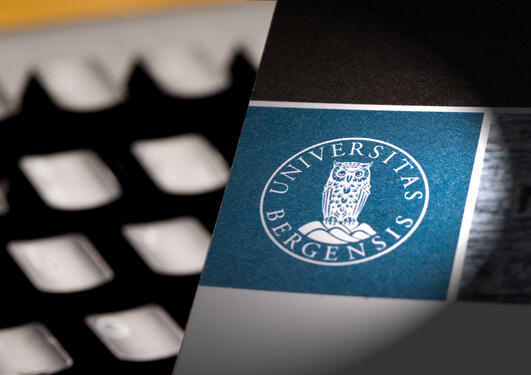Thesis / PhD project
Working on a thesis is the main part of the doctoral education, normally 2.5 years of the standard period of study of three years. The thesis will be assessed by an evaluation committee and will be defended at a public defence.
Main content
The thesis must be an independent, academic work of an internationally recognised standard and at a high academic level in respect of the formulation of the research questions, conceptual clarifications and methodological, theoretical and empirical approaches, as well as in respect of the documentation of sources and formal presentation.
The thesis must contribute to the development of new academic knowledge. It can be submitted as one large document (monograph) or as a collection of several smaller academic works (article-based thesis). There must be an English summary (1-3 pages).
The thesis must be of an academic standard that qualifies it for publication as part of the academic literature in the field. Articles must be of an academic standard required for publication in recognised channels with peer review. The results presented in the monograph must be of a quality that qualifies them for publication in a reworked form. The thesis – or parts of it – do not need to have been published before.
While working with the Dissertation, we recommend that you to look into the advice concerning format. It can be well worth making decisions early in the writing process.
As you approach the last stages of working on your thesis you must inform your deparment of the forthcoming submission. This will help your department in finding an evaluation committee in due time.
Monograph
A monograph should aim to have a distinct focus and be clearly delimited. It should provide a clear description of the research question, theory use, methods, and procedures for data collection and analysis. It must be evident how the thesis relates to and contributes to other research in the field of study. It must be stated if parts of the monograph have already been published as part of another work. A monograph should not normally exceed 300 pages.
Article-based theses
Several works may be approved as parts of a thesis if their content constitutes a whole. In addition to the individual parts, the thesis must have a framing introduction that documents the cohesiveness of the thesis as a whole.
In addition to the framing introduction, the thesis must consist of at least three standard-length scholarly articles or article manuscripts where the candidate is the sole or first author. If this condition is not met, the number of articles must be increased. The number of articles indicated here is a general guideline, and the overall scope of the articles part of the thesis must be assessed in the light of the empirical and theoretical complexity. The committee will assess the academic quality of the articles, regardless of whether they have already been accepted for publication.
Framing introduction in article-based theses
The candidate must be the sole author of the framing introduction in an article-based thesis. The framing introduction shall collate the research questions and conclusions presented in the articles in a way that documents the cohesiveness of the thesis. The framing introduction should demonstrate how the thesis relates to the existing research in the field, indicate its contribution to the field, outline the broader theoretical framework of the study, and provide an in-depth methodological discussion. It should normally be between 20 and 80 pages long.
Joint work
Joint work may be submitted for assessment if the candidate’s contribution represents independent work identifiable to the extent necessary for assessment. In such cases, declarations must be obtained from the co-authors clarifying the extent of co-authorship in the work.If the thesis is a monograph, the candidate must normally be the sole author. A thesis in its entirety can only occasionally be joint work between two candidates. In such cases, the extent of the thesis must be equivalent to two standard doctoral theses. Each candidate’s independent work must be clearly defined and consist of approximately half of the scientific work.
Evaluation
The evaluation committee’s mandate is to assess the thesis and issue a written reasoned recommendation to the Faculty whether they find the thesis worthy of being defended for the doctoral degree at the University of Bergen. If the thesis is worthy of being defended in a public defence, the committee must evaluate and approve the trial lecture and the public defence before the doctoral candidate is awarded the PhD degree. Part 1 of the guidelines deals with the committee's assessment of the thesis. Part 2 deals with the committee's assessment of the trial lecture and public defence. Legislation and rules the guidance is authorized in, is at the end of the guidelines.
Template for errata
After submission, the candidate may apply to correct formal errors in the thesis. With the application you need to attach a list (errata list) displaying all the corrections you plan to make. Neither the corrected version nor the errata list should be sent to the committee.
You can apply to make corrections up until one week after you have received the evaluation report. Please send the application to phd.svfa@uib.no.
A text template has been made for the documentation of such corrections. Use the template in Avhandlingsportalen (About the thesis template). The errata list must be included as a separate document in the thesis. The candidate must take responsibility for printing the errata list and include it in the printed versions of the thesis.
This is approved as errata by the Faculty of Social Sciences:
- correction of typos
- correction of spelling mistakes
- lack of punctuation
- correction of references
- page layout
- text format
- changes that make a sentence meaningful (eg include omitted words that should have been included)
This is not accepted as errata:
- rewriting sentences to make the language better / more precise
- inclusion of new text
- including descriptions or definitions that have been forgotten
Production and printing
UiB has a framework agreement with the printing company Skipnes to facilitate the printing of the final version of the doctoral thesis - copies for the public defence and libraries. The aim is to ensure an easy, reasonably priced and professional management of the process from manuscript to finished thesis.
While working with the Dissertation, we recommend that you to look into the advice concerning format. It can be well worth making decisions early in the writing process.
The dissertation cannot be submitted for assessment at any other institution
Printing copies for the evaluation committee
When you are ready to submit your dissertation read detailed instructions at the web page Submission, assessment and public defence.
PhD vs Dr.Philos.
The level of skills must be the same as for the degree of PhD and Doctor Philosophiae. This principle refers to the academic and professional level and quality, not to the extent of the thesis. If no organized training has been attended at the level of Doctor Philosophiae, one’s work on the thesis should be somewhat more extensive. More details on the thesis requirements- content and scope is written in the Guidelines for evaluation for the Dr.Philos. degree at the Faculty of Social Sciences, University of Bergen.
No matter the degree, the doctoral candidate must satisfy the same minimum requirements as far as research skills are concerned and the formulation of the problem, precision and logical stringency, originality, mastery of the analytical methods employed and reflection on their possibilities and limitations and an overview and understanding of and a reflected stance vis-à-vis other research in the field.

